Navigating the path to a healthy prostate can be a journey of dietary discovery. In this Best food for prostate health: A Nutrient-Rich Guide, we will explore the vital connection between what you eat and the well-being of your prostate. The importance of best diet for prostate health cannot be overstated. With an array of foods rich in vitamins, minerals, and essential nutrients, you have the power to positively influence your prostate health. From the deep, verdant greens of spinach to the omega-3 packed treasures of the sea, each food choice you make can be a step toward better health. As we delve into the best foods for prostate health, you'll learn how certain dietary adjustments can not only nourish your body but also provide a robust defense against common prostate issues.
Whether you're looking to maintain your health or address specific concerns, this guide is designed to provide you with a comprehensive understanding of how each bite contributes to your well-being. So, let's embark on this culinary journey together, exploring the best foods that nature has to offer for your prostate health.
The Best Food For Prostate Health

An effective diet can promote prostate health and help ward off issues with prostate problems like BPH and prostate cancer. Aim to consume lean meats, fruits, vegetables and whole grains daily while limiting fats, salt and sugar intake.
Tomatoes, watermelons and pink grapefruit contain high concentrations of lycopene which has been shown to decrease prostate cancer risk. Also, garlic and turmeric both contain sulfur compounds which may help alleviate inflammation.
A diet low in sugar, processed carbohydrates, and animal fat may support optimal prostate health by preventing an enlarged prostate from growing and mitigating symptoms like frequent urination or blood in the urine. Such a diet could also lower the risk of prostate cancer and other urological issues.
Tomatoes are particularly beneficial for the prostate due to their high lycopene content, an antioxidant that protects against prostate cell damage and inhibits tumor growth. Lycopene is more effectively absorbed when cooked, so incorporating more tomato sauce, stews, or soups into your diet can maximize protection against prostate damage and tumor development.
Cruciferous vegetables such as broccoli, cauliflower, bok choy, kale, cabbage, and Brussels sprouts are rich in vitamins, minerals, and antioxidants that promote prostate health. These vegetables also contain sulforaphane, a potent phytochemical known to protect against prostate cancer.
Legumes and soybeans are excellent sources of protein and dietary fiber. They also contain phytoestrogens, which have been shown to protect against prostate cancer by balancing human sex hormone levels. Incorporating more beans into dishes like chili, salads, or hummus can be beneficial.
Additionally, saw palmetto and pumpkin seeds are also known for their positive effects on prostate health. Saw palmetto is often used in supplements to support prostate health and may help with urinary symptoms associated with an enlarged prostate. Pumpkin seeds are rich in zinc, a mineral important for prostate health, and other beneficial nutrients. Including these in your diet may provide additional support for maintaining a healthy prostate.
Supplement with saw palmetto and pumpkin seeds: Prostate supplements with saw palmetto and pumpkin seed
Do certain foods help protect your against advanced prostate cancer?

Foods to help protect the prostate can be hard to identify precisely, but eating a well-rounded diet with lots of fruits and vegetables is generally recommended. Tomatoes contain an antioxidant known as lycopene that may lower your risk of developing prostate cancer; cooking tomatoes (such as in tomato sauce or soup) releases this lycopene so it's more readily available to your body. Green tea also contains catechins with anti-inflammatory and cancer prevention properties.
Other foods to help fight prostate cancer growth include cruciferous vegetables such as broccoli, cauliflower, kale, Brussel sprouts and cabbage which contain isothiocyanates that inhibit tumor formation. Be sure to include two servings of these vegetables each day as part of your diet plan.
Legumes and soybeans can also benefit your prostate health, along with nuts such as almonds and walnuts. Limiting dairy foods, red meat and processed/cured meats as well as excessive sodium (from pickled and salted vegetables, ham and sausage etc) can also contribute to good prostate health. Alcohol should also be limited for maximum effect.
What food is good for your prostate?
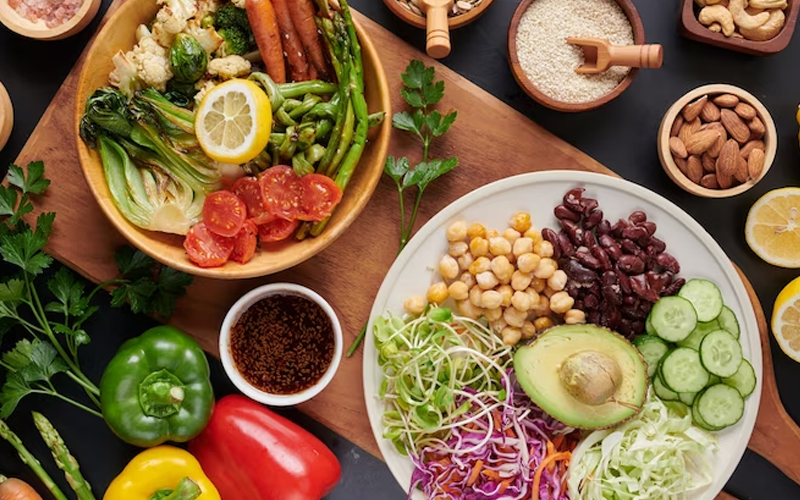
There are various factors that can enhance your prostate health higher risk further, including family history and diet/lifestyle choices. Men who consume a high-fat diet while being overweight or sedentary may increase their risk for prostate cancer.
An appropriate, healthy diet can help protect against prostate issues and ensure it functions normally. It is important to limit consumption of foods high in sugar or saturated fats that could harm prostate function.
Consume plenty of fruits and vegetables. Focus on increasing intake of cruciferous vegetables such as broccoli, cauliflower, kale, Brussels sprouts cabbage bok choy as well as allium vegetables like garlic leeks onions tomatoes to provide your prostate with antioxidants and nutrients that support its health. Tomatoes in particular contain an abundance of lycopene which has been found to both lower risks for prostate cancer as well as slow the prostate cancer progression even in those already diagnosed. Cooking tomatoes makes absorption simpler by your body.
Fiber and water intake is also of utmost importance, and you should limit your consumption of red meats, processed or cured meats (like bacon sausage ham etc) and red wine.
Supplement With lycopene: Ultra Prostate Formula, saw palmetto for men, pygeum, stinging nettle root, lycopene
How to add more tomatoes to your diet?
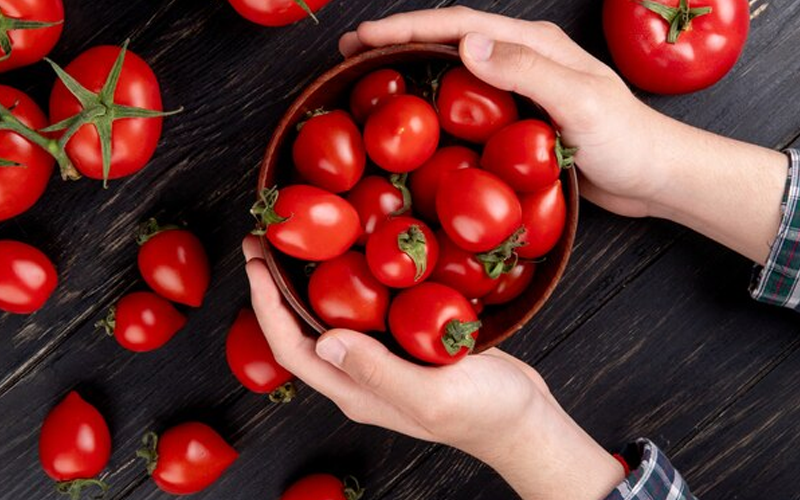
Tomatoes, tomato-based sauces and ketchup can all help promote prostate health. When cooked tomatoes rupture and release lycopene - an antioxidant known as carotenoid that may prevent prostate issues and prostate cancer cells. Sun dried tomatoes used for pasta sauce, soup or salad dressing also contain this nutrient; aim for two servings each day from these sources of nourishment!
Fresh vegetables, berries, fish rich in Omega-3 fatty acids and green tea should all be included as foods to consider in preventing BPH (benign prostatic hyperplasia) and prostate cancer as well as their related inflammation.
Avoid foods high in sugar that cause inflammation and increase the risk of prostate cancer. Furthermore, limit dairy and red meat, both known to increase prostate cancer risks; use them sparingly if necessary.
How to add more legumes and soybeans to your diet
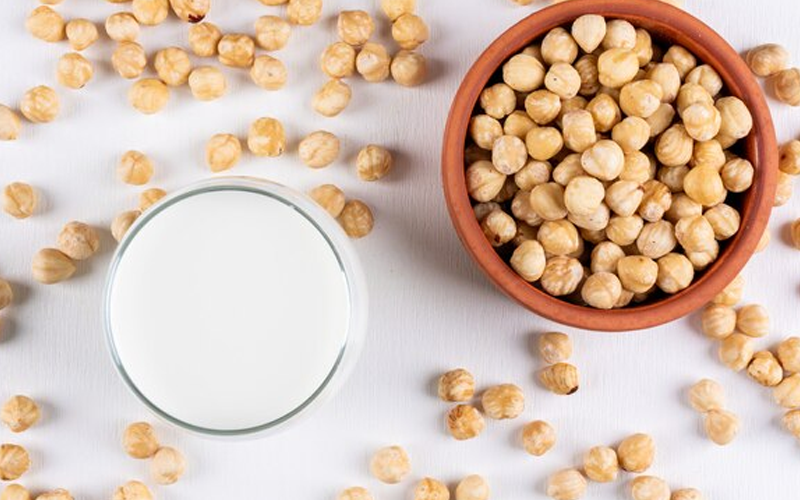
An effective diet to promote prostate health focuses on whole food options. This may include fruits and vegetables rich in lycopene; beans; lean meats such as chicken and fish; as well as healthy fats like olive oil and nuts. Furthermore, it aims to decrease intake of refined and simple carbs like white bread and pasta, hamburger and hot dog buns, chips, crackers cakes cookies and candy.
Legumes and soybeans provide men with phytoestrogens known to protect the prostate, such as isoflavones. Studies show that those consuming more of these plant compounds have decreased risks for an enlarged prostate and reduced risk for prostate cancer.
Avoid red meat and dairy products, which contain saturated fats. Instead, opt for chicken, turkey and fish as alternatives. Also limit butter consumption (mayonnaise is particularly high in saturated fats). Substitute olive oil which has not been shown to increase prostate cancer mortality or risks instead. Green tea with no caffeine added can be another great prostate-protecting food because its antioxidants help protect and reduce inflammation.
What drink is good for prostate?

Maintaining prostate health should be of top priority to men of all ages. Regular medical check-ups and advice, combined with a balanced diet are necessary in ensuring maximum prostate health; especially the avoidance of foods or drinks which increase risk for an enlarged prostate (also known as BPH) or prostate cancer.
Tomatoes contain an antioxidant called lycopene that may help reduce prostate-related issues. For maximum benefit, tomatoes should be eaten cooked to enhance absorption of this compound.
Green tea is another fantastic beverage to promote prostate health. It contains polyphenols - anti-cancer compounds known as flavanoids that have been scientifically shown to reduce tumor and cancer cell growth, and stop cancerous cell spread - making this drink ideal for staying prostate healthy.
Fruit juices can provide an excellent source of vitamin C, which may help prevent an enlarged prostate by reducing general inflammation. However, freshly squeezed orange juice is recommended over bottled varieties due to potential added sugar that could worsen symptoms of an enlarged prostate. As an alternative, try Biotta's Vegetable Cocktail which features organically pressed vegetables with no additional added sugar or preservatives.
Are bananas good for your prostate?
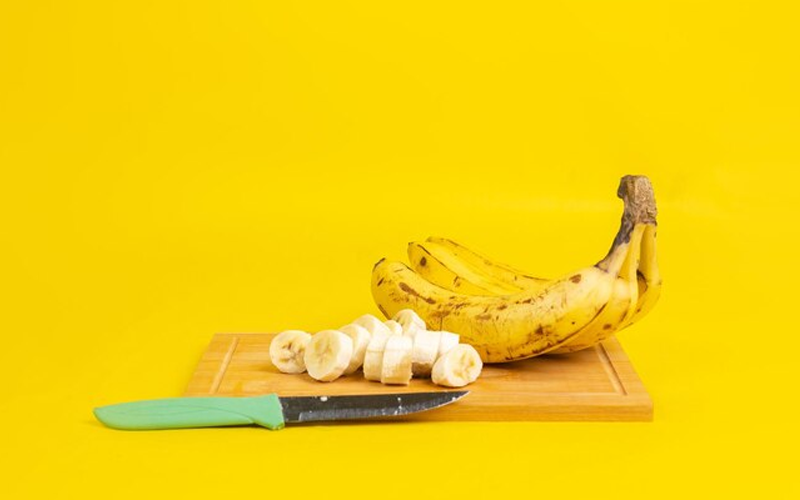
Though no single diet can guarantee prevention of prostate cancer, eating a wide range of whole foods may reduce risk factors for developing advanced prostate cancer or issues. Eating more fruits and vegetables like tomatoes, watermelons, bananas can help lower risk factors; adding them into your diet is one way of doing this; additionally avoiding fatty meats, processed foods, fried foods, red potatoes and dairy is advised against.
Antioxidants found in fruits and vegetables, like lycopene and beta-carotene, can help fight off free radicals that lead to oxidative stress that contributes to prostate cancer. Bananas' abundance of Vitamin C also helps mitigate its effects, while potassium, fiber and vitamin B6 content helps support a healthier prostate.
Shiitake mushrooms can also help men fight prostate cancer by providing a boost of umami flavor when added to soups, stir-fries and (whole!) grain dishes. Shiitakes contain an ingredient known as Lentinan that could possibly stimulate immunity against prostate cancer; however more research must be completed in this area before any definitive answers emerge.
Is rice good for prostate?
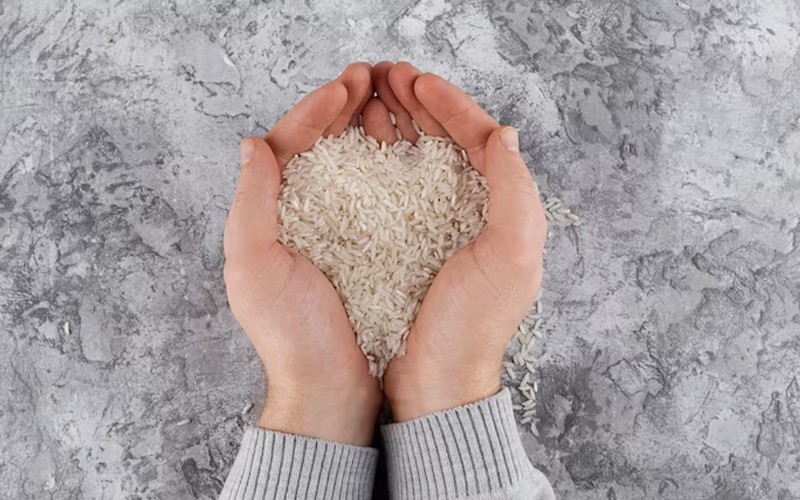
Diet plays an integral part of prostate health. A diet packed with nutrients can reduce your increased risk of of an enlarged prostate and may speed recovery from prostate cancer or inflammation. Foods to consider for prostate care include tomatoes, broccoli, berries and lean meats such as chicken and fish; tomatoes themselves contain an antioxidant known aslycopene that provides protection for prostate gland; watermelons, red carrots and pink grapefruits also contain this powerful ally; while cruciferous vegetables like broccoli bok choy Brussels sprouts cauliflower and kale contain isothiocyanates which prevent cancer cell proliferation.
Attaining optimal health requires avoiding foods high in sugar, saturated and trans fats. Such fats may contribute to insulin resistance and increase your prostate cancer risk; such foods include white bread, pasta, bagels, chips, pizza dough, candy and cookies. Red meat consumption, high-fat dairy products and processed foods should also be limited for maximum health benefits; drink plenty of fluids including water and unsweetened tea to remain hydrated and health.
Conclusion
In concluding our journey through the "Best Food for Prostate Health: A Nutrient-Rich Guide," it's clear that the path to a healthy prostate is paved with a variety of nutrient-dense foods. Incorporating a diet rich in colorful fruits, leafy greens, lean proteins, and healthy fats can make a significant difference in your prostate health and overall well-being. Remember, the choices you make at the dining table have the potential to affect your health in profound ways. By choosing foods that are known to support prostate health, you're not just eating; you're nurturing your body with the care it deserves. It's important to combine these dietary choices with regular check-ups and a healthy lifestyle for the best possible outcomes. As you continue on your path to wellness, let this guide be a reminder of the power of nutrition and the importance of making informed, healthful choices every day. Here's to your health and a future filled with vitality and nourishment!
Frequently Asked Questions – FAQs
Foods beneficial for prostate health include tomatoes (rich in lycopene), green tea, broccoli, cauliflower, berries, nuts, seeds, fatty fish (like salmon, which is high in omega-3 fatty acids), and foods high in antioxidants and zinc.
Green tea is excellent for prostate health due to its antioxidant properties. Water is also crucial to keep the urinary tract healthy.
Regular exercise, maintaining a healthy weight, eating a balanced diet rich in fruits, vegetables, and healthy fats, and avoiding processed foods and red meat can help. Also, practicing pelvic floor exercises can improve prostate health.
Bananas aren't specifically linked to prostate health but are good for overall health due to their high potassium and vitamin C content. However, they don't target the prostate directly.
10 Best Foods for Prostate Health:
- Tomatoes (lycopene)
- Berries (antioxidants)
- Fatty fish (omega-3 fatty acids)
- Green tea (antioxidants)
- Nuts and seeds (healthy fats and zinc)
- Broccoli and cauliflower (sulforaphane)
- Citrus fruits (vitamin C)
- Pomegranates (antioxidants)
- Avocados (healthy fats)
- Whole grains (fiber and nutrients)
10 Foods to Avoid for Prostate Health:
- Red and processed meats (high in saturated fats)
- Dairy products in excess
- Alcohol, especially in excess
- Caffeine
- Spicy foods, which studies suggest can irritate the prostate
- Sugary foods and drinks
- Trans fats found in fried and processed foods
- Excessive salt
- White bread and refined carbs
- Non-grass-fed beef (potential for higher hormone levels).
